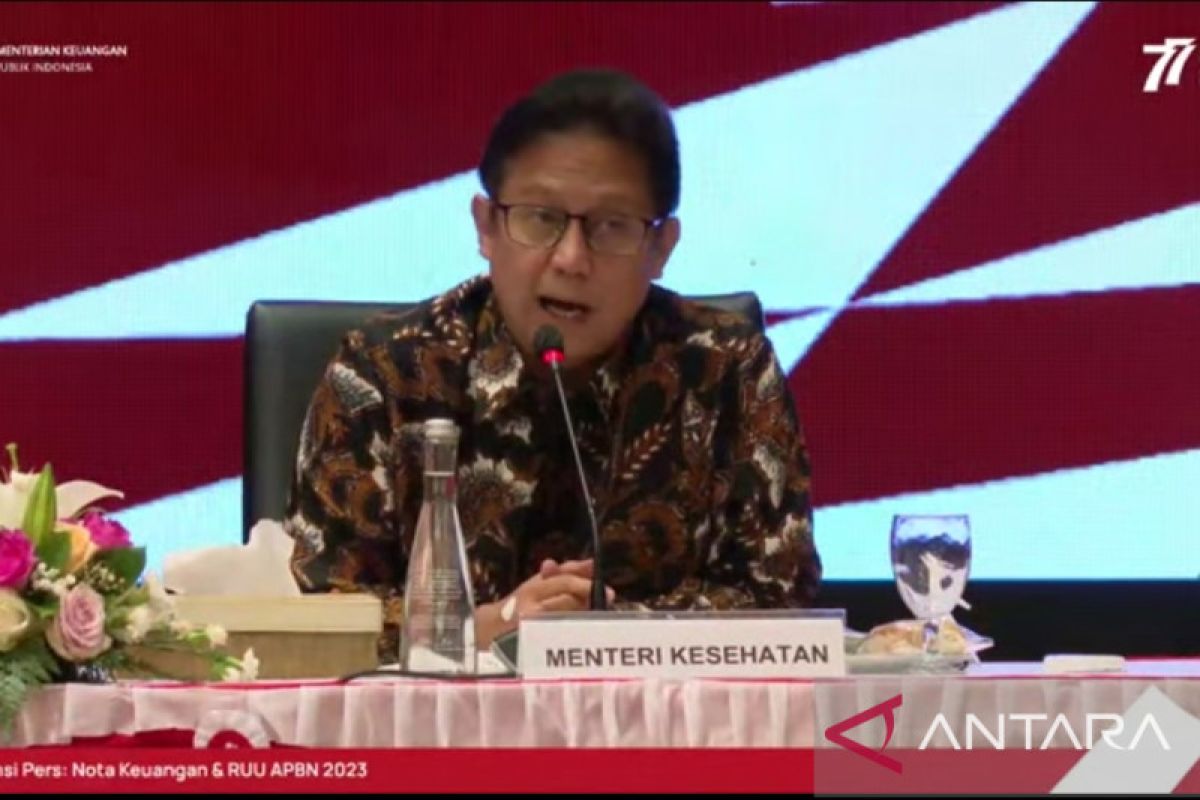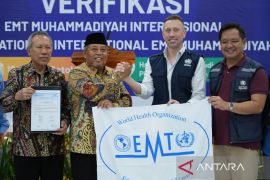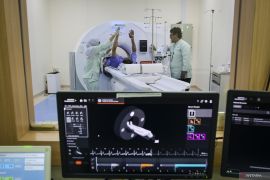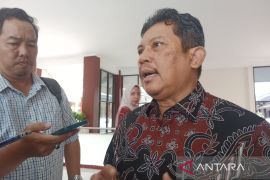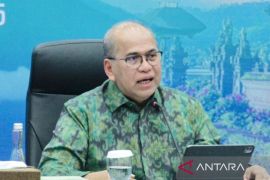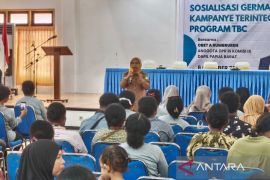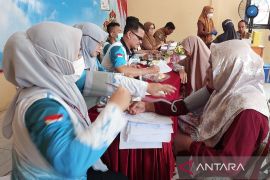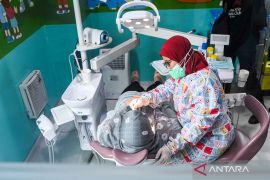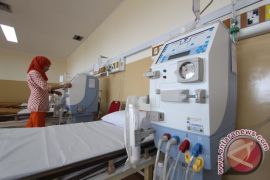To continue to fulfil the aspirations of the nation's founders, the Health Ministry has striven to conduct transformation in the health sector to provide the best services in realizing a healthy Indonesia, he remarked.
Hence, the minister invited the nation's components to maintain discipline in implementing health protocols and immediately accessing COVID-19 vaccination services.
"The goal is to immediately free the Republic of Indonesia from the pandemic and to have the economy recover. Long Live the Republic of Indonesia, recover and revive faster," he stated.
Since 2020, the ministry has initiated activities in accordance with the six pillars of health service transformation in Indonesia to confront pandemics in future in order to keep the people healthy.
The first transformation involves revitalizing 300 thousand health centers, such as integrated health posts (posyandus) to public health centers (puskesmas).
This encompasses bolstering service standards to developing public health laboratories in a structured manner across regions to keep the people healthy when the pandemic strikes.
The second pillar concerns the transformation of referral services.
This can be achieved by improving all hospitals across Indonesia that currently numbered around three thousand to treat four diseases that cause the most number of deaths: heart disease, kidney disease, stroke, and cancer.
The third pillar relates to the transformation of health services.
"We seek to ensure that the health industry is ready in the event of another pandemic that includes preparing reserve health workers in medicine faculties, medicine polytechnics, the scout, and other organizations," he explained.
The fourth transformation concerns health financing in the effort to procure health services, medicines, and health screening devices.
The fifth transformation entails transformation of health human resources in an effort to dispatch health workers to reach remote regions in Indonesia.
"According to the World Health Organization's (WHO's) guideline, Indonesia should have one doctor per one thousand population," the minister pointed out.
"Hence, a population of 270 million should have 270 thousand doctors, while (the number of) our practicing doctors now reached 120 thousand. We lack 150 thousand doctors," he stated.
In addition, Indonesia's 92 medicine faculties can only produce 12 thousand doctors within a year.
"Thus, we need (a period of) 15 years to fill the (shortage in terms of the) number of doctors to meet the WHO's minimal standard," he explained.
The sixth pillar relates to transformation in technology.
"Health will be standardized through electronic medical records, so that everyone can be (on) the same (page) and be integrated in all health facilities," he affirmed.
Related news: Some 300 traders at Beringharjo Market hold Independence Day ceremony
Related news: Indonesians in Japan should revive stronger : Ambassador
Related news: President pays respects to heroes interred at Kalibata Heroes Cemetery
Translator: Andi Firdaus, Fadhli Ruhman
Editor: Sri Haryati
Copyright © ANTARA 2022
